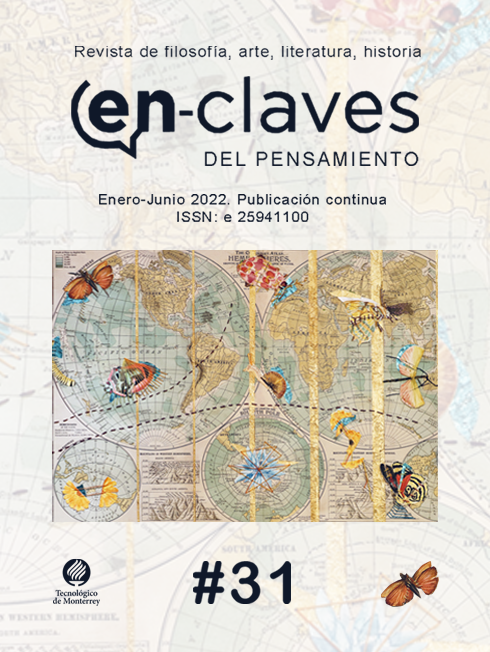Towards Equity and Epistemic Justice in the Recognition of Women in the Production of Knowledge
Main Article Content
This work aims to integrate theoretical elements that understand the process of knowledge beyond the situated subjects and where relationships of social inequality can generate experiences misunderstood by the agents involved. In this context, it is proposed that women be integrated and recognized as epistemic agents in the processes of knowledge in conditions of equality concerning the dominant groups, free of prejudice. The article is thus constituted by three sections, in addition to an introduction and final reflections. We begin with a description of the basic concepts that will allow us to focus and analyze the assumptions about justice and feminist epistemologies. Subsequently, we incorporate Miranda Fricker's proposal into the discussion, in particular the notion of epistemic injustice and its relationship with women's production of knowledge. Finally, we return to the concepts of community and epistemic equity, as theoretical tools for solving the problem to recognize women as agents of knowledge in terms of equity, for this we expose the example of Marie-Anne Pierrette Paulze-Lavoisier.
Alcalá, Raúl. Una visión hermenéutica del contexto cultural contemporáneo. México: UNAM, 2018.
Arrieta, Teresa. “Sobre el pensamiento feminista y la ciencia”. Letras. Revista de Investigación de la Facultad de Letras y Ciencias Humanas, 89, núm. 130 (2018): 51-78. https://doi.org/10.30920/letras.89.130.3.
Benavente, Rocío. “Marie-Anne Pierrette Paulze-Lavoisier, la madre de la química moderna que lo perdió (casi) todo en la Revolución Francesa”. Mujeres con Ciencia, 3 de octubre, 2019. https://mujeresconciencia.com/2019/10/03/marie-anne-pierrette-paulze-lavoisier-la-madre-de-la-quimica-moderna-que-lo-perdio-casi-todo-en-la-revolucion-francesa/
Blazquez Graf, Norma, Fátima Flores Palacios y Maribel Ríos Everardo (coords.). Investigación feminista. Epistemología, metodología y representaciones sociales. México: UNAM, 2012.
Díaz, Leonardo. “Un caso de injusticia hermenéutica: la vida de Donald Shirley en la película Green Book”. Ciencia y Sociedad, 44, núm. 4 (2019). https://doi.org/10.22206/cys.2019.v44i4.pp25-32.
Foucault, Michael. Defender la sociedad. México: Fondo de Cultura económica, 2002.
Fricker, Miranda. Injusticia epistémica. Trad. de Ricardo García Pérez. Barcelona: Herder Editorial, 2017.
García-González, Dora Elvira. El liberalismo hoy: una reconstrucción crítica del pensamiento de Rawls. México: Plaza y Valdés, 2002.
García-González, Dora Elvira. La paz como ideal moral. Una reconfiguración de la filosofía de la paz para la acción común. Madrid: Dykinson, 2019.
Harding, Sandra. Ciencia y feminismo. Madrid: Morata, 2016.
Muñoz Páez, Adela. “Madame Lavoisier: la madre de la química moderna”. Redes, núm. 8 (2010): 68-69.
Pérez Sedeño, Eulalia. “¿El poder de una ilusión? Ciencia, Género y Feminismo”. En María Teresa López de la Vieja (ed.), Feminismo: del pasado al presente. Salamanca: Ediciones Universidad de Salamanca, 2000.
Salmerón, María Angélica. “Marie-Anne Paulze Lavoisier y el nacimiento de la química moderna”. La Ciencia y El Hombre, XXIII, núm. 1, 2010. https://www.uv.mx/cienciahombre/revistae/vol23num1/articulos/mujeres-ciencia/index.html.
Velasco, Ambrosio. “Equidad epistémica, racionalidad y diversidad cultural”. En Carlos López Beltrán y Ambrosio Velasco (coords.), Aproximaciones a la filosofía política de la ciencia. México: UNAM, 2013.
Villoro, Luis. Creer, saber, conocer. México: Siglo XXI, 1982.
Villoro, Luis. Los retos de la sociedad por venir. México: Fondo de Cultura Económica, 2007.
Article Details

This work is licensed under a Creative Commons Attribution-NonCommercial 4.0 International License.













